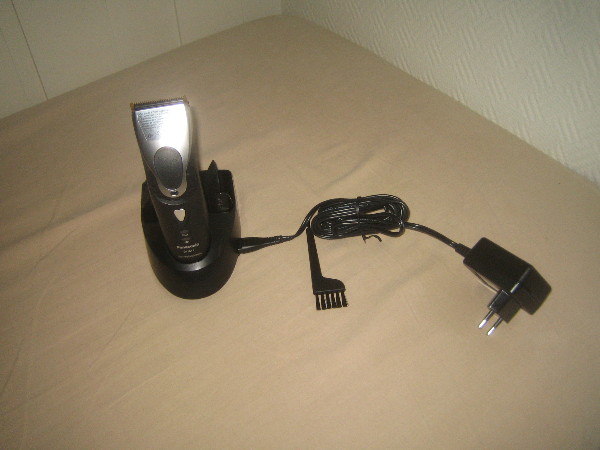It has been a few busy weeks for me, but I am finally back to
publish another interview with the people behind
Debian Edu and Skolelinux.
This time it is one of our German developers, who have helped out over the
years to make sure both a lot of major but also a lot of the minor
details get right before release.
Who are you, and how do you spend your days?
My name is Jürgen Leibner, I'm 49 years old and living in
Bielefeld, a town in northern Germany. I worked nearly 20 years as
certified engineer in the department for plant design and layout of an
international company for machinery and equipment. Since 2011 I'm a
certified technical writer (tekom e.V.) and doing technical
documentations for a steam turbine manufacturer. From April this year
I will manage the department of technical documentation at a
manufacturer of automation and assembly line engineering.
My first contact with linux was around 1993. Since that time I used
it at work and at home repeatedly but not exclusively as I do now at
home since 2006.
How did you get in contact with the Skolelinux/Debian Edu
project?
Once a day in the early year of 2001 when I wanted to fetch my
daughter from primary school, there was a teacher sitting in the
middle of 20 old computers trying to boot them and he failed. I helped
him to get them booting. That was seen by the school director and she
asked me if I would like to manage that the school gets all that old
computers in use. I answered: "Yes".
Some weeks later every of the 10 classrooms had one computer
running Windows98. I began to collect old computers and equipment as
gifts and installed the first computer room with a peer-to-peer
network. I did my work at school without being payed in my spare time
and with a lot of fun. About one year later the school was connected
to Internet and a local area network was installed in the school
building. That was the time to have a server and I knew it must be a
Linux server to be able to fulfil all the wishes of the teachers and
being able to do this in a transparent and economic way, without extra
costs for things like licence and software. So I searched for a
school server system running under Linux and I found a couple of
people nearby who founded 'skolelinux.de'. It was the Skolelinux
prerelease 32 I first tried out for being used at the school. I
managed the IT of that school until the municipal authority took over
the IT management and centralised the services for all schools in
Bielefeld in December of 2006.
What do you see as the advantages of Skolelinux/Debian
Edu?
When I'm looking back to the beginning, there were other advantages
for me as today.
In the past there were advantages like:
- I don't need to buy it so it generates no costs to the school as
they had little money to spent for computers and software.
- It has a licence which grands all rights to use it without
cost.
- It was more able to fit all requirements of a server system for
schools than a Microsoft server system, even if there are only Windows
clients because of it's preconfigured overall concept of being a
infrastructure solution and community for schools, not only a
server
- I was able to configure the server to the needs of the
school.
Today some of the advantages has been lost, changed or new ones
came up in this way:
- Most schools here do have money to buy hardware and software
now.
- They are today mostly managed from central IT departments which
have own concepts which often do not fit to Debian Edu concepts
because they are to close to Microsoft ideology.
- With the Squeeze version of Debian Edu which now uses GOsa² for
management I feel more able to manage the daily tasks than with the
interfaces used in the past.
- It is more modular than in the past and fits even better to the
different needs.
- The documentation is usable and gets better every day.
- More people than ever before are using Debian Edu all over the
world and so the community, which is an very important part I think,
is sharing knowledge and minds.
- Most, maybe all, of the technical requirements for schools are
solved today by Debian Edu.
What do you see as the disadvantages of Skolelinux/Debian
Edu?
- There are too few IT companies able to integrate Debian Edu into
their product portfolio for serving schools with concepts or even
whole municipality areas.
- Debian Edu has beside other free and open software projects not
enough lobbyists which promote free and open software to
politicians.
- Technically there are no disadvantages I'm aware of.
Which free software do you use daily?
I use Debian stable on my home server and on my little desktop
computer. On my laptop I use Debian testing/sid. The applications I
use on my laptop and my desktop are Open/Libre-office, Iceweasel,
KMail, DigiKam, Amarok, Dolphin, okular and all the other programs I
need from the KDE environment. On console I use newsbeuter, mutt,
screen, irssi and all the other famous and useful tools.
My home server provides mail services with exim, dovecot, roundcube
and mutt over ssh on the console, file services with samba, NFS,
rsync, web services with apache, moinmoin-wiki, multimedia services
with gallery2 and mediatomb and database services with MySQL for me
and the whole family. I probably forgot something.
Which strategy do you believe is the right one to use to
get schools to use free software?
I believe, we should provide concepts for IT companies to integrate
Debian Edu into their product portfolio with use cases for different
countries and areas all over the world.
